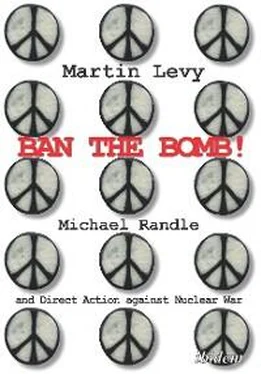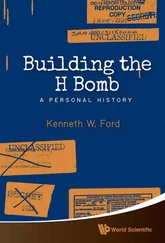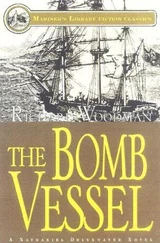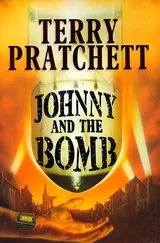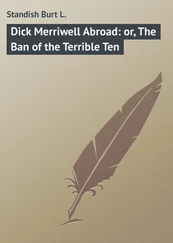‘Now Randle’, Sir Reginald began on one occasion at about halfway through the trial. ‘I am Mr Randle,’ Michael shot back. 3He simply could not be intimidated.
I first met Michael during the late summer of 2017. Though ‘met’ probably isn’t the right word as I didn’t meet him, I met his archive.
Back then I had a part-time job assisting the special collections librarian at Bradford University, where one of my responsibilities was to retrieve the documents that researchers had ordered from the storerooms.
One day someone asked to see Michael’s archive and, following my usual custom, I looked into it myself and was intrigued. It was packed with remarkable documents on anti-nuclear protest and letters from such notables as Bertrand Russell, Albert Schweitzer and Noam Chomsky.
A few weeks after that, I was sitting in the staffroom and I had an idea: ‘Why don’t I interview Michael?’ I knew by then that he had been interviewed before, but maybe I could get the whole story, not just the bits that people already knew or thought they knew about.
The next day I sent him an email. Was he up for it? He was.
Michael lives a few miles outside of Bradford, in Shipley, in a turning off the Bingley Road as you proceed towards Cottingley; and I remember thinking as I got off the bus, this is a neighbourhood where I would like to live.
It is suburban with a bit of bling. There are cafes and lots of charity shops and the great, hulking mass of the Victorian Salts Mill not more than a few minutes’ walk away.
Michael’s a smallish man in his mid-eighties, his head is full of white hair and yet he’s surprisingly good on his feet. I liked him as soon as I set eyes on him.
Usually, you can tell a lot about someone from their living room. Michael’s is comfortable and unpretentious. There are paintings and family photographs on the walls, two large sofas, a rectangular wooden coffee table, an ancient television in one of the far corners and a well-stocked bookcase near the door, containing volumes by Yeats, Chesterton, Keats and some of the better-known ‘sixties poets.
After I’d set the voice recorder up and we’d chatted for about forty minutes, he asked me if I wanted coffee. It was then that Anne appeared. Anne is Michael’s wife. She’s younger than Michael by ten years or so.
She’s also, I soon discovered, the practical one. Michael sees things as they should be, Anne sees them mostly as they are. They could be antagonists, but instead they complement each other.
I could have improvised the interviews, flown by the seat of my pants. But there’s more to a proper interview than turning up at the right time and asking a few questions. You need to prepare yourself with a bit of reading, prove to the interviewee that, though you may not be an expert, you do at least know what you’re talking about.
Fortunately, from the point of view of preparation, I could not have been better placed. Not only did I have Michael’s archive back in Special Collections, but I had a number of other relevant archives too, not to mention the university library itself, which is stocked with all sorts of important-looking books on anti-nuclear protest and social movements more generally.
People who work in special collections departments often talk about the archives ‘speaking’ to each other, which sounds poetic if not downright fey—the proximity to all that paper must rot the brain. But, in an important sense, it’s true. They do speak to each other, even though the order in which they are arranged on the shelves sometimes suggests otherwise.
Michael’s archive speaks most to the Hugh Brock Papers and to the archives of the Direct Action Committee Against Nuclear War, the Committee of 100 (collected by Derry Hannam) and Peace News .
These five archives therefore provided much of the information behind the questions I asked him.
And then it also speaks to books, pamphlets, magazines and newspapers, including the newspaper that gave rise to the Peace News archive in the first place—which, luckily, the university has a full set of. Indeed, it is one of the jewels of the University library’s Commonweal Collection.
As for Peace News , how many people on the left read it nowadays? Hundreds? Thousands? I know that Michael does. I know that because he is still an occasional contributor.
When Michael joined Peace News as a sales organiser in the late 1950s, it was about to enter its golden age. Under the editorship of Hugh Brock, a generation of new and younger activist-writers and writer-activists made their mark: Chris Farley, Alan Lovell, Albert Hunt, Pat Arrowsmith, April Carter, John Arden, Michael himself and many others.
Most of them were anarchists. They brought with them powerful ideas, some of which originated in the New Left, writing about film, theatre, art, music and literature with sharper eyes and ears.
But, most importantly, they brought new thinking on non-violent direct action, specifically in relation to nuclear weapons, turning the paper into what can fairly be described as the most interesting and exciting radical newspaper of the 1960s.
Indeed, it was Peace News that drew Michael to non-violent direct action in the first place.
In 1952, just a few weeks after he’d registered as a conscientious objector, he read an account of a sit-down outside the War Office (now the Ministry of Defence) by a tiny group called Operation Gandhi.
The article appeared on the front page on 18 January under the headline ‘Pacifists told Police and War Office: “We are coming to Squat”’.
I know they are the exact words, because I’m sitting in the library and holding the paper now.
The article fills about a third of the space and is illustrated with a photograph of two policemen, plus two other men and two women: Geoffrey Plummer, Harry Mister, Dorothy Wheeler and Kathleen Rawlins. Both of the women are smiling.
It describes what inspired the sit-down: opposition to NATO and the facts that Britain was rearming and being ‘converted into one of the chief atomic bomb bases of the world’; and explains what happened to the demonstrators when they refused the police request to depart: their arrest and removal to Bow Street Police Court, where they were charged with obstruction.
If it is true that a single newspaper article can change a life, then reading this article changed Michael’s. Not that he would put it that way—Michael isn’t melodramatic. But, quite simply, it launched him on a lifetime of non-violent anti-nuclear activism.
But why Operation Gandhi? In other words, why the name? What did Gandhi have to do with nuclear weapons, anyway? The answer to the third question is not a lot. But he had a method of non-violent resistance that the little group adopted, as did Michael in his turn.
The method was called Satyagraha or Truth Force—‘satya’ in Gujarati meaning ‘truth’ and ‘agraha’ meaning ‘force’ or ‘firmness’; and it was a complete method of non-violent resistance, emphasising courage, discipline, self-sacrifice, love and, as the headline makes clear, openness and fair-dealing with opponents.
That makes it sound vague, quasi-religious, and not particularly exciting. In some senses it was vague. Unexciting it was not. In any case, it was the method that inspired them, first to the War Office sit-down, then shortly afterwards to other demonstrations, first at a little known atomic research establishment at Aldermaston, in the Berkshire countryside, then a few months later at a NATO missile base, near Chippenham in Suffolk.
Operation Gandhi then was the organisation that put non-violent anti-nuclear protest on the map, and which drew Michael into non-violent anti-nuclear activism into the first place. But it was the Direct Action Committee (DAC) which followed it, that turned Michael into a national figure.
Читать дальше
